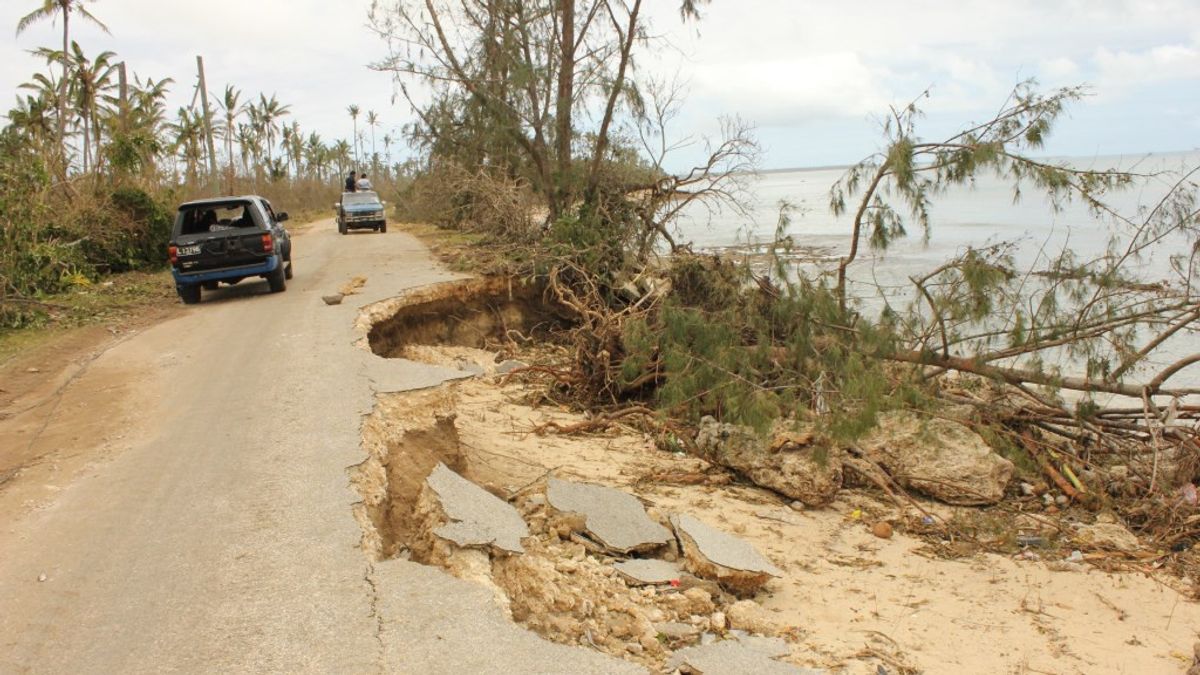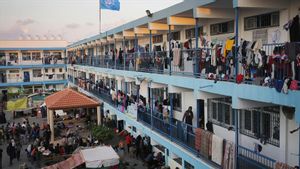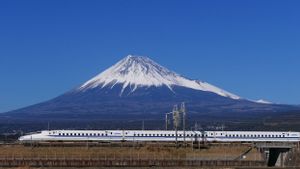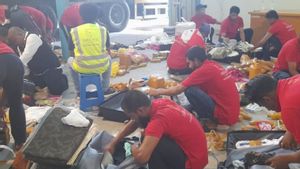JAKARTA - An underwater volcano off the coast of Tonga erupted on Saturday, triggering a tsunami on Tonga's coast and cutting off telephone and internet lines for the entire island.
There have been no official reports of injuries or deaths in Tonga, but communication is still limited and remote coastal areas remain cut off. Satellite images show several remote islands submerged in water.
The Hunga-Tonga-Hunga-Ha'apai volcano has erupted regularly for the past few decades but the impact of Saturday's eruption was felt as far away as Fiji, New Zealand, the United States and Japan.
About 26 hours since the eruption, countries thousands of kilometers to the west have clouds of volcanic ash above them, New Zealand weather forecaster WeatherWatch said in a statement.
Fiji, Vanuatu and New Caledonia were affected and an ash cloud was expected to spread eastward towards Australia on Monday, he said.
Preliminary data suggest the volcanic eruption was the biggest explosion since Mount Pinatubo in the Philippines 30 years ago, New Zealand-based volcanologist Shane Cronin told Radio New Zealand.
"This eruption can be seen clearly from space. The large and explosive spread of the eruption indicates that it may be the largest since around the 1991 eruption of Pinatubo," said Cronin.
Meanwhile, Australia and New Zealand sent surveillance flights to assess the damage in Tonga this Monday, isolated from the rest of the world by an underwater volcanic eruption that triggered a tsunami and blanketed the Pacific island in ash.
Australian Prime Minister Scott Morrison vowed to provide support for Tonga as early as possible, but said volcanic ash had hampered relief efforts.
"There are a lot of challenges there with the ash cloud and communication disruptions, so we're working together to get as much support as possible into Tonga," PM Morrison told radio station 2GB.
Meanwhile, Australia's Minister for the Pacific Zed Seselja said initial reports indicated there were no mass casualties and the airport "appears to be in relatively good condition" but there was "significant damage" to roads and bridges.
Seselja said Australia was working with the United States, New Zealand, France and other countries to coordinate the response.
Earlier, New Zealand Prime Minister Jacinda Ardern said on Sunday the tsunami had a significant impact on infrastructure.
Meanwhile, the Red Cross said it was mobilizing its regional network to respond to what it called the worst volcanic eruption the Pacific had experienced in decades.
"The Red Cross currently has sufficient relief supplies in the country to support 1,200 households with essential items such as tarpaulins, blankets, kitchen utensils, shelter kits and cleaning supplies," said Katie Greenwood, Head of IFRC Pacific Delegation.
The agency said there were concerns the public might not have access to safe drinking water as a result of the salt water inundation caused by the tsunami waves and ashfall. Housing is also a concern, especially for communities near the coastline, he added.
Separately, United Nations Secretary-General Antonio Guterres said on Twitter that United Nations offices in the Pacific were on standby to provide support.
The English, Chinese, Japanese, Arabic, and French versions are automatically generated by the AI. So there may still be inaccuracies in translating, please always see Indonesian as our main language. (system supported by DigitalSiber.id)













